 W
WThe Student Nonviolent Coordinating Committee was the principal channel of student commitment in the United States to the civil rights movement during the 1960s. Emerging in 1960 from the student-led sit-ins at segregated lunch counters in Greensboro, North Carolina, and Nashville, Tennessee, the Committee sought to coordinate and assist direct-action challenges to the civic segregation and political exclusion of African Americans. From 1962, with the support of the Voter Education Project, SNCC committed to the registration and mobilization of black voters in the Deep South. Affiliates such as the Mississippi Freedom Democratic Party and the Lowndes County Freedom Organization in Alabama increased dramatically the pressure on federal and state government to enforce constitutional protections.
 W
WElla Josephine Baker was an African-American civil rights and human rights activist. She was a largely behind-the-scenes organizer whose career spanned more than five decades. In New York City and the South, she worked alongside some of the most noted civil rights leaders of the 20th century, including W. E. B. Du Bois, Thurgood Marshall, A. Philip Randolph, and Martin Luther King Jr. She also mentored many emerging activists, such as Diane Nash, Stokely Carmichael, and Bob Moses, as leaders in the Student Nonviolent Coordinating Committee (SNCC).
 W
WMarion Shepilov Barry was an American politician who served as the second and fourth mayor of the District of Columbia from 1979 to 1991 and 1995 to 1999. A Democrat, Barry had served three tenures on the Council of the District of Columbia, representing as an at-large member from 1975 to 1979 and in Ward 8 from 1993 to 1995, and again from 2005 to 2014.
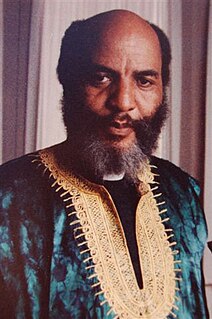 W
WJames Luther Bevel was a minister and a leader of the Civil Rights Movement in the United States. As the Director of Direct Action and of Nonviolent Education of the Southern Christian Leadership Conference (SCLC), he initiated, strategized, directed, and developed SCLC's three major successes of the era: the 1963 Birmingham Children's Crusade, the 1965 Selma voting rights movement, and the 1966 Chicago open housing movement. He suggested that SCLC call for and join a March on Washington in 1963. Bevel strategized the 1965 Selma to Montgomery marches, which contributed to Congressional passage of the 1965 Voting Rights Act.
 W
WAlma Jean Billingslea is an American scholar and teacher, and a veteran of the civil rights movement.
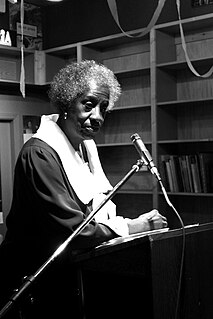 W
WUnita Zelma Blackwell was an American civil rights activist who was the first African-American woman to be elected mayor in the U.S. state of Mississippi. Blackwell was a project director for the Student Nonviolent Coordinating Committee (SNCC) and helped organize voter drives for African Americans across Mississippi. She was also a founder of the US China Peoples Friendship Association, a group dedicated to promoting cultural exchange between the United States and China. Barefootin', Blackwell's autobiography, published in 2006, charts her activism.
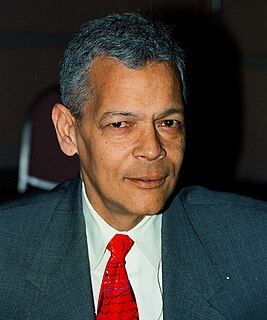 W
WHorace Julian Bond was an American social activist, leader of the civil rights movement, politician, professor, and writer. While he was a student at Morehouse College in Atlanta, Georgia, during the early 1960s, he helped establish the Student Nonviolent Coordinating Committee (SNCC). In 1971, he helped found the Southern Poverty Law Center in Montgomery, Alabama, and served as its first president for nearly a decade.
 W
WJamil Abdullah Al-Amin, formerly known as H. Rap Brown, is a civil rights activist, black separatist, and convicted criminal who was the fifth chairman of the Student Nonviolent Coordinating Committee in the 1960s. During a short-lived alliance between SNCC and the Black Panther Party, he served as their minister of justice.
 W
WKwame Ture was a prominent organizer in the civil rights movement in the United States and the global Pan-African movement. Born in Trinidad, he grew up in the United States from the age of 11 and became an activist while attending the Bronx High School of Science. He was a key leader in the development of the Black Power movement, first while leading the Student Nonviolent Coordinating Committee (SNCC), then as the "Honorary Prime Minister" of the Black Panther Party (BPP), and last as a leader of the All-African People's Revolutionary Party (A-APRP).
 W
WThe Civil Rights Movement Archive refers to both an online collection of materials about the American civil rights movement of the 1950s and 1960s, as well as the organization that created and maintains it. The collection provided by the CRMA includes materials from many parts of the civil rights movement, and "tells the history of the movement from the perspective of those who were there," an "up-from-below" and "inside-out" approach to history.
 W
WCharles E. "Charlie" Cobb Jr. is a journalist, professor, and former activist with the Student Nonviolent Coordinating Committee (SNCC). Along with several veterans of SNCC, Cobb established and operated the African-American bookstore Drum and Spear in Washington, D.C. from 1968 to 1974. Currently he is a senior analyst at allAfrica.com and a visiting professor at Brown University.
 W
WBettie Mae Fikes, also known as The Voice of Selma, is an American singer and civil rights activist.
 W
WJames Forman was a prominent African-American leader in the civil rights movement. He was active in the Student Nonviolent Coordinating Committee (SNCC), the Black Panther Party, and the League of Revolutionary Black Workers. As the executive secretary of SNCC from 1961 to 1966, Forman played a significant role in the freedom rides, the Albany movement, the Birmingham campaign, and the Selma to Montgomery marches.
 W
WFannie Lou Hamer was an American voting and women's rights activist, community organizer, and a leader in the civil rights movement. She was the co-founder and vice-chair of the Freedom Democratic Party, which she represented at the 1964 Democratic National Convention. Hamer also organized Mississippi's Freedom Summer along with the Student Nonviolent Coordinating Committee (SNCC). She was also a co-founder of the National Women's Political Caucus, an organization created to recruit, train, and support women of all races who wish to seek election to government office.
 W
WTimothy Lionel Jenkins is an American social and civil rights activist, attorney, educator, and former business and government executive. In the 1960s, he was a co-founder and leader of the Student Nonviolent Coordinating Committee (SNCC) as well as the National Conference of Black Lawyers (NCBL).
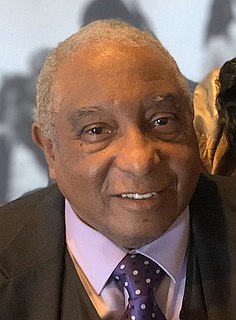 W
WBernard Lafayette, Jr. is an American civil rights activist and organizer, who was a leader in the Civil Rights Movement. He played a leading role in early organizing of the Selma Voting Rights Movement; was a member of the Nashville Student Movement; and worked closely throughout the 1960s movements with groups such as the Student Nonviolent Coordinating Committee (SNCC), the Southern Christian Leadership Conference (SCLC), and the American Friends Service Committee.
 W
WThe Leesburg Stockade was an event in the civil rights movement in which a group of African-American teenage and pre-teen girls were arrested for protesting racial segregation in Americus, Georgia, and were imprisoned without charges for 45 days in poor conditions in the Lee County Public Works building, in Leesburg, Georgia. The building was then called the Leesburg Stockade, and gave its name to the event. The young prisoners became known as the Stolen Girls.
 W
WJohn Robert Lewis was an American statesman and civil rights activist who served in the United States House of Representatives for Georgia's 5th congressional district from 1987 until his death in 2020. He was the chairman of the Student Nonviolent Coordinating Committee (SNCC) from 1963 to 1966. Lewis was one of the "Big Six" leaders of groups who organized the 1963 March on Washington. He fulfilled many key roles in the civil rights movement and its actions to end legalized racial segregation in the United States. In 1965, Lewis led the first of three Selma to Montgomery marches across the Edmund Pettus Bridge. In an incident which became known as Bloody Sunday, state troopers and police attacked the marchers, including Lewis.
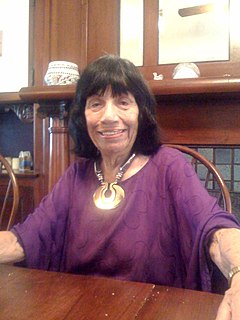 W
WElizabeth "Betita" Martínez was an American Chicana feminist and a long-time community organizer, activist, author, and educator. She wrote numerous books and articles on different topics relating to social movements in the Americas. Her best-known work is the bilingual 500 years of Chicano History in Pictures, which later formed the basis for the educational video ¡Viva la Causa! 500 Years of Chicano History. Her work was hailed by Angela Y. Davis as comprising "one of the most important living histories of progressive activism in the contemporary era ... [Martínez is] inimitable ... irrepressible ... indefatigable."
 W
WRobert Parris Moses was an American educator and civil rights activist, known for his work as a leader of the Student Nonviolent Coordinating Committee (SNCC) on voter education and registration in Mississippi during the Civil Rights Movement, and his co-founding of the Mississippi Freedom Democratic Party. As part of his work with the Council of Federated Organizations (COFO), a coalition of the Mississippi branches of the four major civil rights organizations, he was the main organizer for the Freedom Summer Project.
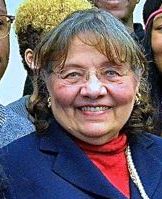 W
WDiane Judith Nash is an American civil rights activist, and a leader and strategist of the student wing of the Civil Rights Movement.
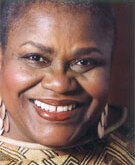 W
WBernice Johnson Reagon is a song leader, composer, scholar, and social activist, who in the early 1960s was a founding member of the Student Non-violent Coordinating Committee's (SNCC) Freedom Singers in the Albany Movement in Georgia. In 1973, she founded the all-black female a cappella ensemble Sweet Honey in the Rock, based in Washington, D.C. Reagon, along with other members of the SNCC Freedom Singers, realized the power of collective singing to unify the disparate groups who began to work together in the 1964 Freedom Summer protests in the South.“After a song,” Reagon recalled, “the differences between us were not so great. Somehow, making a song required an expression of that which was common to us all.... This music was like an instrument, like holding a tool in your hand.”
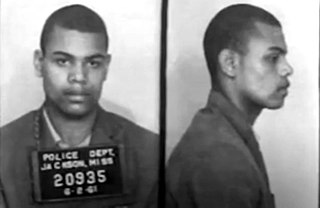 W
WCordell Hull Reagon was an American singer and activist. He was the founding member of The Freedom Singers of the Student Nonviolent Coordinating Committee (SNCC), a leader of the Albany Movement and a Freedom Rider during the Civil Rights Movement.
 W
WJudy Richardson is an American documentary filmmaker and civil rights activist. She was Distinguished Visiting Lecturer of Africana Studies at Brown University.
 W
WMario Savio was an American activist and a key member of the Berkeley Free Speech Movement. He is most famous for his passionate speeches, especially the "put your bodies upon the gears" address given at Sproul Hall, University of California, Berkeley on December 2, 1964.
 W
WGwendolyn Zoharah Simmons, formerly Gwendolyn Robinson, is an Assistant Professor of Religion at the University of Florida, where she researches Islamic feminism and the impact of Sharia law on Muslim women. She was a civil rights activist, serving as a member of both the Student Nonviolent Coordinating Committee (SNCC) and the Nation of Islam (NOI). Simmons has received a number of prestigious fellowships, including a Fulbright Fellowship, USAID Fellowships, and an American Center of Oriental Research Fellowship.
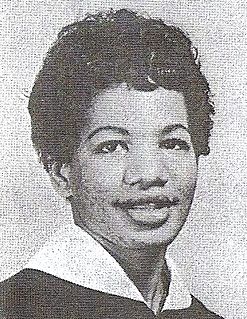 W
WRuby Doris Smith-Robinson worked with the Student Nonviolent Coordinating Committee (SNCC) from its earliest days in 1960 until her death in October 1967. She served the organization as an activist in the field and as an administrator in the Atlanta central office. She eventually succeeded James Forman as SNCC's executive secretary and was the only woman ever to serve in this capacity. She was well respected by her SNCC colleagues and others within the movement for her work ethic and dedication to those around her. SNCC Freedom Singer Matthew Jones recalled, "You could feel her power in SNCC on a daily basis". Jack Minnis, director of SNCC's opposition research unit, insisted that people could not fool her. Over the course of her life, she served 100 days in prison for the movement.
 W
WFrank Smith, Jr., is a civil rights activist and politician in Washington, D.C.
 W
WBrenda Travis is an African American veteran of the Civil Rights Movement from McComb, Mississippi whose imprisonments for protesting a segregated bus station and participation in a peaceful high school walk out in 1961 helped catalyze public sentiment against segregation.
 W
WRick Tuttle is an American politician, university administrator and educator from Los Angeles, California.
 W
WSamuel Leamon Younge Jr. was a civil rights and voting rights activist who was murdered for trying to desegregate a "whites only" restroom. Younge was an enlisted service member in the United States Navy, where he served for two years before being medically discharged. Younge was an active member of the Student Nonviolent Coordinating Committee (SNCC) and a leader of the Tuskegee Institute Advancement League.
 W
WJohn Robert Zellner is an American civil rights activist. He graduated from Huntingdon College in 1961 and that year became a member of the Student Nonviolent Coordinating Committee (SNCC) as its first white field secretary. Zellner was involved in numerous civil rights efforts, including nonviolence workshops at Talladega College, protests for integration in Danville, Virginia, and organizing Freedom Schools in Greenwood, Mississippi, in 1964. He also investigated the murders of Chaney, Goodman, and Schwerner that summer.